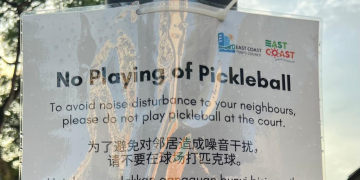Here are some choice snippets you can expect from this week’s episode:
The definition of consent
Essentially, consent is an agreement between participants to engage in sexual activity. It should be clearly and freely communicated, and Samuel Chou thinks that consent can be offered through a combination of verbal and body language.
Luke Levy further explains that consent is never permanent and can be reversible and retracted: “If you give consent for one thing, and then you decided midway that you are not comfortable with this, you are free to retract it,” he says.
Examples of consent
Sri Mulyadi shares her experience with a client whose husband expected sex from her: “I’ve seen clients who are 50 plus, because they are married, they felt that they are obliged to give sex to their partner.”
She explains that for the older generation, women thought that consent was not crucial, even for sex; that they “need to give it” to their husbands when they ask for it, shares Ms Mulyadi.
Are there differences in consent between men and women?
While there are gender norms that society has constructed, says Mr Levy, consent should not be different between men and women. Hence, a ‘no’ is always a ‘no’ whether a man or woman says it.
Enthusiastic consent
Enthusiastic consent is defined as having both parties enthusiastically consenting to everything that happens during a sexual act. As noted by Mr Levy, people are not taught what ‘enthusiastic consent’ is when growing up and this may lead to coercions in terms of power.
Ms Mulyadi explains how enthusiastic consent can be seen through the body language of each party: “So if they’re not enthusiastic in deeper intimacy, that’s not really consent”.
Educating others on consent
The important aspect to note when educating the public on consent is how individuals approach this topic, as Mr Chou explains: “Ultimately, our culture… is built on… conformity and fear… [we] have to build [ourselves] as an individual.”
Ms Mulyadi adds that it is the people that need to be conscious in working with the notion of consent.
What can survivors of consent violations do to cope
To cope with consent violations, it is important that you find a community that can help lift your burdens together. Ms Melissa suggests finding “survivors of the same situation” and trying to “understand each other so that the pain would eventually leave or be forgettable.”
Adds Mr Levy, “I think most survivors have difficulty getting past that first step of internalised guilt… We have to take that first step and realise that it is never your fault if you get sexually violated.”














